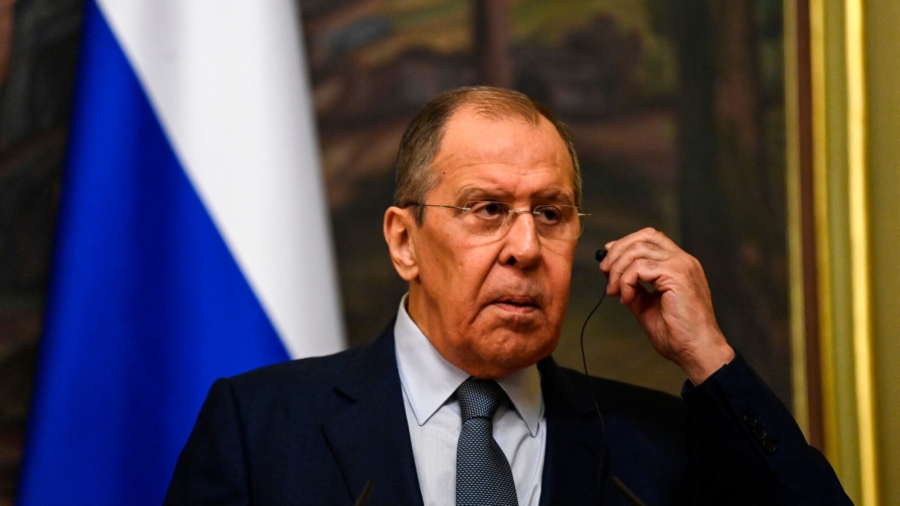Russia said it will suspend its permanent mission to the North Atlantic Treaty Organization (NATO) on Monday in retaliation to the Western military alliance’s expulsion of eight Russian diplomats.
Sergei Lavrov, the country’s foreign minister, said at a news conference that the suspension of the Russian Permanent Mission to NATO could come into effect as early as next month and is a result of “NATO’s actions.”
“As a result of NATO’s deliberate moves, we have practically no conditions for elementary diplomatic work and in response to NATO’s actions, we suspend the work of our permanent mission to NATO, including the work of the chief military envoy, probably from Nov. 1, or maybe it will take a couple more days,” Lavrov said.
Lavrov added that NATO members who have “any emergency business” can still contact our ambassador in Belgium on these questions, as the alliance’s office in Moscow, the nation’s capital, will be closed.
NATO said on Monday it has taken into account Lavrov’s comments on the mutual suspension of diplomatic missions, noting that it hasn’t received any official communication about the matter.
“We have taken note of Minister Lavrov’s comments to the media, however, we have not received any official communication on the issues he raised,” the NATO Press Office told news agency TASS in a request to comment on Lavrov’s statement.
On Oct. 6, NATO expelled eight members of Russia’s mission to the military alliance after accusing them of engaging in espionage, while also having the size of Moscow’s team able to work at its headquarters reduced from 20 to 10.
The Kremlin has dismissed the accusations.
Lavrov said that NATO’s actions have confirmed that it “isn’t interested in any kind of equal dialogue or joint work,” adding that “we don’t see any need to keep pretending that there could be any shift in the foreseeable future.”
The Russian Permanent Mission isn’t based at NATO’s headquarters, but in a leafy neighborhood in the south of the Belgian capital of Brussels.
NATO suspended practical cooperation with Russia in 2014 after it annexed Ukraine’s Crimean Peninsula, but has kept channels open for high-level meetings and for military-to-military cooperation. But the NATO-Russia Council, their preferred forum, has only met sporadically since then.
Amid a strain in ties, Moscow has repeatedly voiced concerns over the deployment of NATO forces near Russian borders, describing it as a threat to its security. Russia and the alliance also have blamed each other for conducting destabilizing military exercises near the borders.
The Associated Press contributed to this report.

